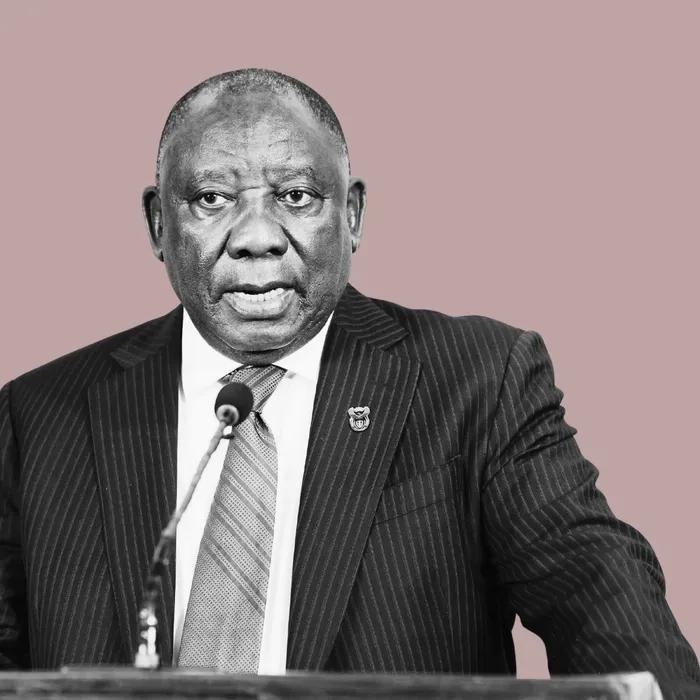Ramaphosa says GNU was formed to fix unemployment, crime, and corruption in SA

President Cyril Ramaphosa claims the GNU was created to fix urgent national issues.
Image: GCIS, IOL Graphics
President Cyril Ramaphosa claims the Government of National Unity (GNU) was formed with challenges in mind, including unemployment, rampant crime, poverty, corruption, and restoring the trust of the people, despite the ANC having lost its majority in the May 2024 general elections.
He made the remarks as he presented the Presidency’s budget vote for the 2025–26 financial year at the National Assembly on Wednesday.
“Today, the world faces real and significant challenges, and so do we as a country and as a nation,” Ramaphosa told Parliament.
“We face an increasingly volatile world, with many disruptions to global trade, as well as deepening conflicts that are raging in many parts of the world.”
Ramaphosa acknowledged high levels of unemployment and sluggish economic growth that have hindered job creation.
“We face the corrosive effects of corruption and pervasive crime, to which the poorest among us are most vulnerable,” he said.
“We also face the daunting task of building a capable state that can address these challenges and restore the trust of our people.”
Ramaphosa claimed the GNU was established to place the country on firmer footing, promote economic growth, foster transformation, and maintain peace and prosperity.
“When we established the GNU, we understood we were embarking on a new era in our democracy,” he said.
“We understood it would be complex and involve navigating novel challenges.”
However, is it widely known that the GNU was not born from a vision to address these challenges but rather from necessity, after the African National Congress (ANC) failed to secure a majority in the May 2024 general elections - for the first time since the dawn of democracy in 1994.
The coalition government at the national level, saw the ANC partnering with its former political rivals, including the Democratic Alliance (DA) and Freedom Front Plus.
The GNU, which recently marked its first anniversary, has faced turbulence.
Coalition partners have frequently clashed over policy and legislation.
The DA has taken the Expropriation Without Compensation Act and the Employment Equity Amendment Act to court, opposing ANC-led initiatives.
In April, the party successfully challenged the passing of a fiscal framework in Parliament, which had been pushed through with support from non-GNU parties such as ActionSA and Build One South Africa.
The DA, the second-largest member of the GNU, has also failed in efforts to block the Basic Education Laws Amendment Act and the National Health Insurance Act.
Despite these internal tensions, Ramaphosa emphasised the adoption of the Medium-Term Development Plan, outlining actions over the next five years to address national priorities.
“First, we aim to drive inclusive growth and job creation. Second, to tackle poverty and address the high cost of living. And third, to build a capable, ethical and developmental state,” he said.
He said all the government departments and entities are committed to implementing these priorities with urgency and purpose.
“Most importantly, there is a shared understanding that we need to rise above our differences and work together to make progress on the important challenges our country faces,” he said.
Ramaphosa said the GNU approach emphasises national cohesion, partnership and unity.
A national dialogue process will begin with a National Convention on August 15.
“The national dialogue is not just about talking,” Ramaphosa said.
“Like CODESA, the National Peace Accord, and the constitutional consultation process, this dialogue is expected to produce tangible results.”
He said the dialogue aims to build consensus around a shared vision and social compact aligned with the National Development Plan.
“This does not displace our democratic processes, nor does it divert us from the electoral mandate of this Parliament,” he said.
“The government will continue to act to address immediate concerns - to grow the economy, create jobs, tackle corruption and crime, and improve local government.”
The medium-term plan, he said, includes specific and measurable targets to help guide national progress.
simon.majadibodu@iol.co.za
IOL Politics